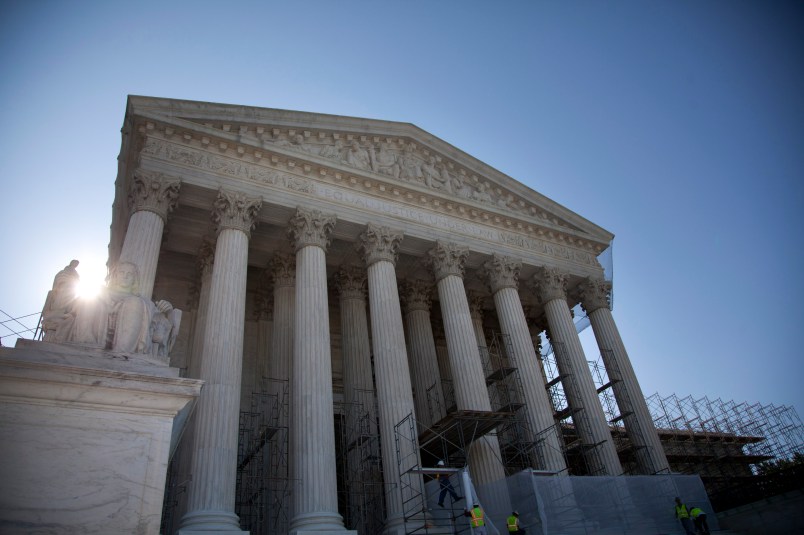UPDATE: June 25, 2015, 10:20 AM EDT
WASHINGTON (AP) — The Supreme Court on Thursday upheld the nationwide tax subsidies under President Barack Obama’s health care overhaul, in a ruling that preserves health insurance for millions of Americans.
The justices said in a 6-3 ruling that the subsidies that 8.7 million people currently receive to make insurance affordable do not depend on where they live, under the 2010 health care law.
The outcome is the second major victory for Obama in politically charged Supreme Court tests of his most significant domestic achievement.
Chief Justice John Roberts again voted with his liberal colleagues in support of the law. Roberts also was the key vote to uphold the law in 2012. Justice Anthony Kennedy, a dissenter in 2012, was part of the majority on Thursday.
“Congress passed the Affordable Care Act to improve health insurance markets, not to destroy them,” Roberts wrote in the majority opinion.
Nationally, 10.2 million people have signed up for health insurance under the Obama health overhaul. That includes the 8.7 million people who are receiving an average subsidy of $272 a month to help pay their insurance premiums.
Of those receiving subsidies, 6.4 million people were at risk of losing that aid because they live in states that did not set up their own health insurance exchanges.
The challenge devised by die-hard opponents of the law, often derided by critics as “Obamacare,” relied on four words — established by the state — in the more than 900-page law.
The law’s opponents argued that the vast majority of people who now get help paying for their insurance premiums are ineligible for their federal tax credits. That is because roughly three dozen states opted against creating their own health insurance marketplaces, or exchanges, and instead rely on the federal healthcare.gov to help people find coverage if they don’t get insurance through their jobs or the government.
In the challengers’ view, the phrase “established by the state” demonstrated that subsidies were to be available only available to people in states that set up their own exchanges. Those words cannot refer to exchanges established by the Health and Human Services Department, which oversees healthcare.gov, the opponents argued.
The administration, congressional Democrats and 22 states responded that it would make no sense to construct the law the way its opponents suggested. The idea behind the law’s structure was to decrease the number of uninsured. The law prevents insurers from denying coverage because of “pre-existing” health conditions. It requires almost everyone to be insured and provides financial help to consumers who otherwise would spend too much of their paycheck on their premiums.
The point of the last piece, the subsidies, is to keep enough people in the pool of insured to avoid triggering a so-called death spiral of declining enrollment, a growing proportion of less healthy people and premium increases by insurers.
Several portions of the law indicate that consumers can claim tax credits no matter where they live. No member of Congress said that subsidies would be limited, and several states said in a separate brief to the court that they had no inkling they had to set up their own exchange for their residents to get tax credits.
The 2012 case took place in the midst of Obama’s re-election campaign, when he touted the largest expansion of the social safety net since the advent of Medicare nearly a half-century earlier. But at the time, the benefits of the Affordable Care Act were mostly in the future. Many of its provisions had yet to take effect.
In 2015, the landscape has changed, although the partisan and ideological divisions remain for a law that passed Congress in 2010 with no Republican votes.
The case is King v. Burwell, 14-114.
Read the full decision:
Copyright 2015 The Associated Press. All rights reserved. This material may not be published, broadcast, rewritten or redistributed.







Congratulations Mr. President.
From Scalia’s dissent: “We should start calling this law SCOTUScare.”
Oh, grow up. Act like you are on the Supreme Court or something…
Fantastic news to wake up to.
Republicans are thinking the same thing – now they have something to continue to vow to repeal, and can continue to have no alternate plan.
Oh, that must have smarted!
#Congratulations American People!!
Right before the decision was made, I hope RBG glared at Scalia while cracking her knuckles.